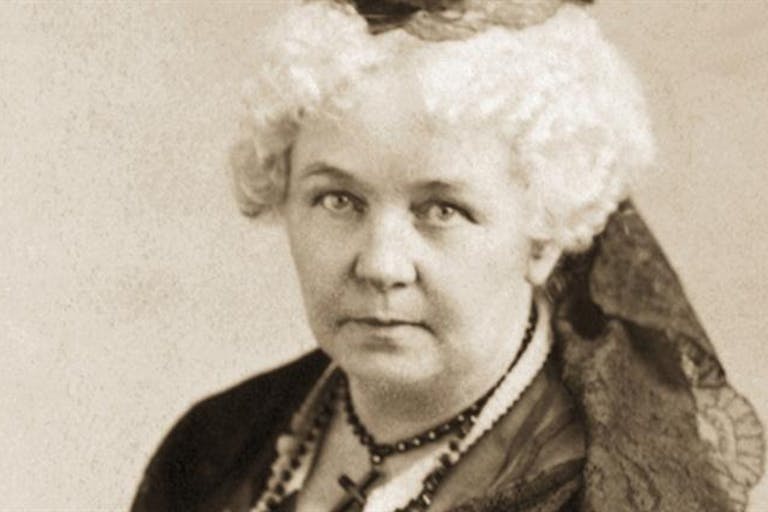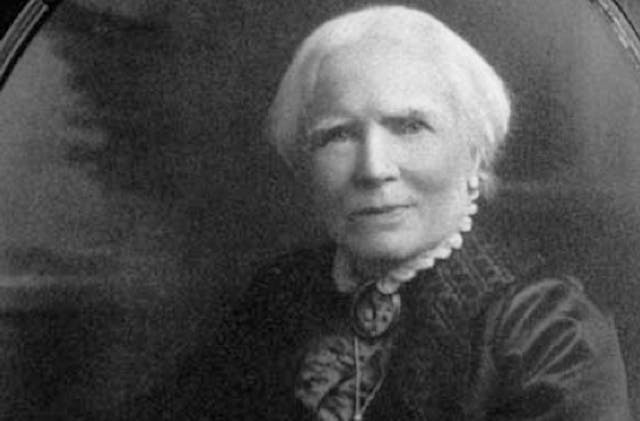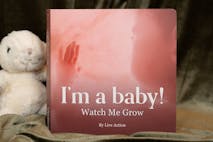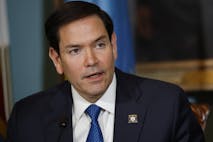
Research shows Catholic support for IVF declines once Church teaching is understood
Angeline Tan
·
Human Rights·By Nancy Flanders
Our first feminists never wanted abortion
When Elizabeth Cady Stanton was penning the Declaration of Sentiments, she was imagining a future in which women had the right to own property and to vote, as well as the ability to participate in legislation. She was picturing a life in which women were viewed as equal to men, able to earn an income, able to speak their mind, and treated with respect. But in that vision, did Stanton see a world with abortion on demand? Did any of the major players in early feminism aim for such a thing? No, the early feminists fought for women’s rights, and they did not include abortion.
The first feminists of the United States of America didn’t want what today’s liberal feminists spend their time fighting for — total and complete ‘reproductive freedom.’ They saw abortion for what it is: the oppression of women and children. Stanton said:
When we consider that women have been treated as property, it is degrading to women that we should treat our children as property to be disposed of as we see fit.
In the February 5, 1868, issue of The Revolution, Stanton referred to the “murder of children, either before or after birth” as an “evil” which had become “frightfully prevalent.”

Dr. Elizabeth Blackwell
Along with Stanton, Elizabeth Blackwell, the first female doctor in the United States, spoke out against abortion. Concerning Madame Restell, a fellow female doctor who committed abortions, Blackwell said:
The gross perversion and destruction of motherhood by the abortionist filled me with indignation, and awakened active antagonism. That the honorable term ‘female physician’ should be exclusively applied to those women who carried on this shocking trade seemed to me a horror. It was an utter degradation of what might and should become a noble position for women.
The thought of killing preborn children was a horrible one to our first feminists. They could never have foreseen that an act they considered “evil” and a “gross perversion and destruction of motherhood” would become the center-stage issue that it is today. So focused on abortion are the liberal feminists of the 21st century that politicians are beholden to the abortion industry, accepting money from groups like NARAL and Planned Parenthood in exchange for votes against even popular laws such as the banning of abortion after viability.
So how did feminism lead us to today’s worship of abortion?
Another early feminist, Susan B. Anthony, nailed it when she said:
All the articles on this subject [abortion] that I have read have been from men. They denounce women as alone guilty, and never include man in any plans for the remedy. . . Guilty? Yes. No matter what the motive, love of ease, or a desire to save from suffering the unborn innocent, the woman is awfully guilty who commits the deed [abortion]. It will burden her conscience in life, it will burden her soul in death; But oh, thrice guilty is he who drove her to the desperation which impelled her to the crime!
It would be men who would add abortion to feminism’s to-do list.
In fact, even into the 1960s, the women’s movement remained focused on issues such as women’s right to education and equal pay. The so-called right to abortion was not a goal of feminists even 100 years after Stanton and other first feminists began the movement for women’s rights. Abortion did not take center stage until a few bad men stepped in and worked to convince the women’s movement to take on the pet issues of sexual revolution advocates — including contraception and abortion.
Journalist Sue Ellen Browder’s book Subverted highlights how Lawrence Lader and abortionist Bernard Nathanson founded NARAL and concluded that they needed feminists on board with them if they wanted to get abortion legalized. After years of trying to persuade her, Lader convinced Betty Friedan to include abortion in her political platform despite the fact that Friedan was initially against abortion. Lader convinced Friedan and other women that they needed abortion in order to be truly equal. He did this by grossly exaggerating the number of women who were undergoing illegal abortions and how many of those women were dying from abortion. In order for the sexual revolution to “work,” men needed to avoid accountability, and the best way to remain uncommitted and unaccountable to women was to ensure that children were never born as a result of their sexual affairs.
Article continues below
Dear Reader,
In 2026, Live Action is heading straight where the battle is fiercest: college campuses.
We have a bold initiative to establish 100 Live Action campus chapters within the next year, and your partnership will make it a success!
Your support today will help train and equip young leaders, bring Live Action’s educational content into academic environments, host on-campus events and debates, and empower students to challenge the pro-abortion status quo with truth and compassion.
Invest in pro-life grassroots outreach and cultural formation with your DOUBLED year-end gift!

Larry Lader and Bernard Nathanson — two men behind the original abortion industry in the U.S.
Over time, women became convinced that it was their children who were holding them back from accomplishing equality. Rather than celebrating the differences between men and women and the equality that exists within and in spite of those differences, women became convinced that they had to be the same as men. Men are never questioned about their ability to do their job because of the number of children they have. Men are not routinely told they cannot get a college degree and be a father at the same time. Men are not overlooked for a promotion because their wife is pregnant. No, it was and still remains women who are told that parenting does not allow for other goals, dreams, or accomplishments. It became common belief that if women wanted to be equal to men, they had to deny the basic and beautiful biological difference between the two sexes. They had to refuse life to their children.
Today, over 70 percent of women who abort say they felt pressured to do so. That pressure comes from the men — and now fellow women, too — who convince these women they can never finish their education or continue their career with a child in tow. The pressure comes from boyfriends or husbands who threaten to leave them if they don’t have an abortion. The pressure comes from parents who threaten to kick a girl out on the streets because she has embarrassed their family. These pressures are overwhelming because women don’t feel they can raise a child alone. And yet, they can. True feminism shows them that.
READ: What to do if your boyfriend – or anyone – wants you to get an abortion
While it is ideal for men and women to work together caring for children as a family, the sexual revolution hijacked the women’s movement and made it acceptable for men to walk away from their children. With abortion, women were made to feel that they should also walk away from their babies. Women often feel that abortion is their only choice, but it’s not. Many a strong modern woman has given life to her child, defying her circumstances.
READ: I was scheduled to be aborted, but my mom had the strength to walk out
Freedom doesn’t come from your back being up against the wall.
Abortion doesn’t mean equality. It isn’t synonymous with freedom. Abortion is oppression. Stanton, Blackwell, and Anthony knew it in the late 1800s and early 1900s. That’s why they never fought for it. That’s why they pointed it out as evil. That’s why they noticed that it was men who wanted abortion, not women.
If men and women work together in complete and true equality, balancing each other’s strengths and reaching together for common goals, then women can experience true freedom, along with their children. Perhaps then, the goals of our first feminists can finally be obtained.
READ: Pregnant and feeling alone? You’re not. Here’s where to get help
Live Action News is pro-life news and commentary from a pro-life perspective.
Contact editor@liveaction.org for questions, corrections, or if you are seeking permission to reprint any Live Action News content.
Guest Articles: To submit a guest article to Live Action News, email editor@liveaction.org with an attached Word document of 800-1000 words. Please also attach any photos relevant to your submission if applicable. If your submission is accepted for publication, you will be notified within three weeks. Guest articles are not compensated (see our Open License Agreement). Thank you for your interest in Live Action News!

Angeline Tan
·
Human Rights
Angeline Tan
·
Human Rights
Bridget Sielicki
·
Human Rights
Carole Novielli
·
International
Angeline Tan
·
Human Rights
Nancy Flanders
·
Human Interest
Nancy Flanders
·
Politics
Nancy Flanders
·
Human Interest
Nancy Flanders
·
Politics
Nancy Flanders
·
Human Interest
Nancy Flanders
·